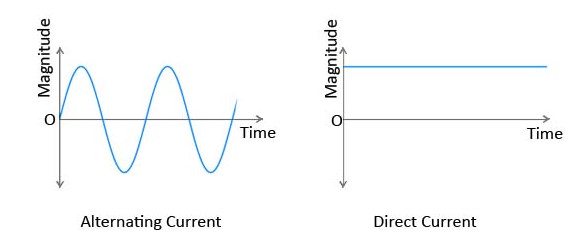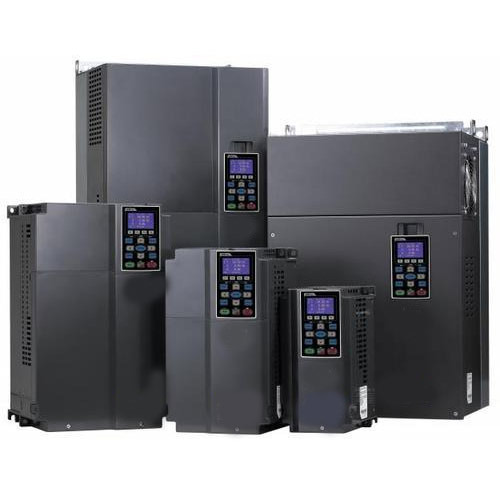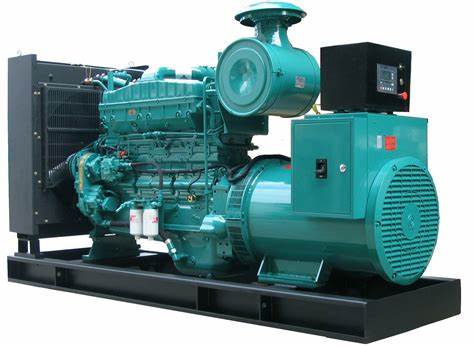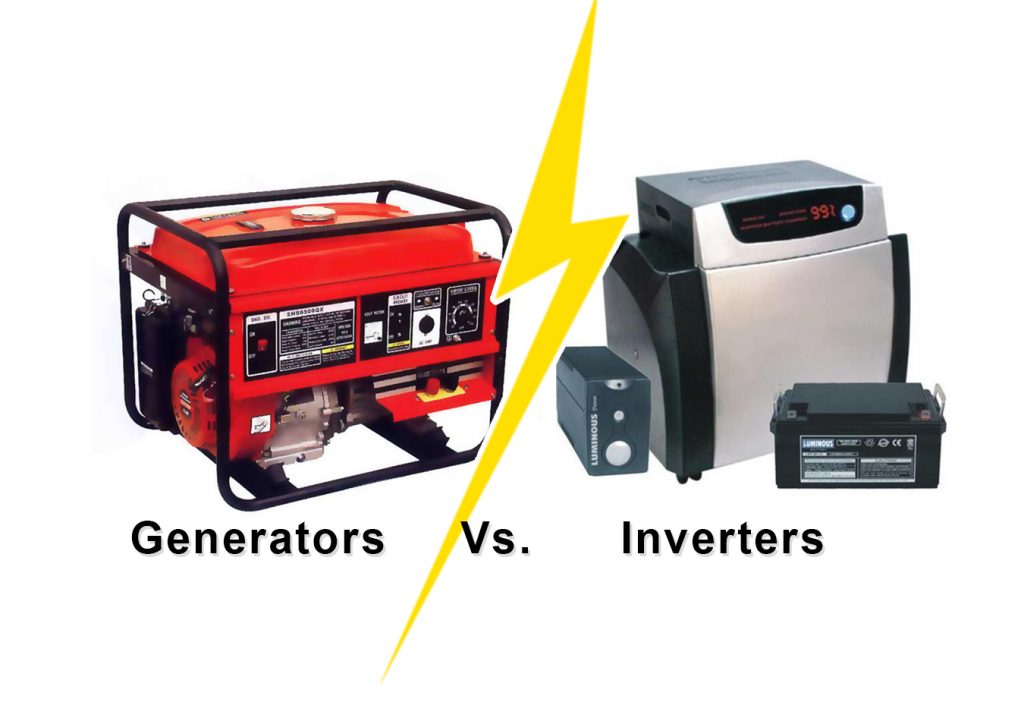Generator vs Inverter, do you know what the differences are and which one in your desired application should be employed? Here we are going to see the Generator Vs Inverter topic.
Interested in learning about the Functions of a Generator? A Generator’s functioning principle and uses may be found here at Linquip. In search of a place to purchase Generator Equipment? Visit Linquip’s Generator For Sale, where you can see a complete list of all Generator Products depending on your needs and application.
For your convenience, Linquip also provides a list of Generator Suppliers and Companies from which you may select the best one. Linquip has a wide variety of Generator Manufacturers who can help you discover the right equipment for your application. The best Generator Service Provider businesses can also manage your industrial equipment services activities, such as the installation, maintenance, and repair of your industrial equipment.
A generator produces electrical power, while an inverter converts one type of electrical current to another. This is the crucial consideration for the Generator vs Inverter topic. There are two distinct types of electrical current, alternating (AC) and direct (DC). Inverters are applied when devices that utilize AC power are required to be used in a car or other place where only DC power is available. Although there are inverter generators that do both for greater energy efficiency, the two machines have different functions.
We spoke to a representative from 2nd city gas plumbing and heating, who specializes in boiler repair Redditch, and he said, “Inverters work differently from generators, they became popular in recent years because they generate clean AC electricity, they are quieter, and they do not produce noise. The main advantage of inverters is that they produce really high-quality stable power output. The disadvantage of inverters is pretty obvious too, they are pretty expensive. On the other hand, generators have to run at constant speeds of about 3600 rpm in order to produce electricity. Their main disadvantage is that they are very noisy, but they are inexpensive.”
How We Write this Blog Post about Generator vs Inverter
Writing a blog post about the differences between generators and inverters can be an interesting and informative task. At First Aid Blog, we strive to provide our readers with high-quality content that is trustworthy and informative.
When we set out to write this blog post, we first conducted in-depth research on the topic. This included consulting with our team of expert writers and researchers, who have years of experience in the field of emergency preparedness. We also used this opportunity to share our own experiences and insights about the topic.
We then turned to multiple webpages and articles on the subject, ensuring that we had a comprehensive understanding of the subject. We reviewed studies and reports to ensure that we were presenting the most accurate and up-to-date information to our readers.
Throughout the writing process, we strived to make the content informative, engaging, and easy to understand. We used clear and concise language, avoiding jargon and technical terms whenever possible. We also added visuals, such as infographics and images, to enhance the reader’s understanding of the topic.
Overall, we are proud of the high-quality content that we have created. Our blog post is a comprehensive and informative guide that will help readers make informed decisions about choosing between generators and inverters. We hope that it will prove to be a valuable resource for our readers.
What is the Mechanism of Electrical Current?
Imagine that the electrical wire, or conductor, through which electricity flows is made of atoms and that electrons orbit the nuclei of each atom. This is a simple way to explain how electrical current works. When more electrons are added to the conductor, they move to join the existing atoms, and each atom “spits out” one electron to the following atom in its outer orbit. One atom passing an electron to the next causes the electron flow, which is the flow of electricity. The following atom accepts this new electron and “spits out” another electron on the opposite side, and so on and so forth.
How do Batteries Generate Energy?
In short, an electrochemical battery makes electricity by mixing two different metals in a chemical solution called an electrolyte. One end of the battery contains one type of metal, while the other end has a different type of metal. When the two metals react chemically with the electrolyte, more electrons are released from one metal than the other. The metal in the battery that liberates the most electrons generate a positive charge, while the other metal creates a negative charge. Electrons pass across an electrical conductor (a wire) to balance the electrical charge if the battery’s ends are connected.
What is the Difference Between AC and DC Current?
Alternating current and direct current vary in that electrons flow back and forth in AC, but solely in one direction in DC. Because AC can stand higher voltages, it loses less energy when it progresses long distances. As a result, AC is typically utilized to supply power to most houses and buildings. Therefore, most home appliances run on AC; oppositely, they’d need to convert the AC power provided to the building or home to DC to power the device. Personal computers generally run on DC and include a rectifier to perform this conversion. In this case, the rectifier is more regularly referred to as a power supply.

How Does an Inverter Work?
An inverter takes the existing power that arrives in the form of a direct current and transforms it into an alternating current. It accomplishes this by sending the current within switches that send it in various directions. Filters may then be employed to smooth out the wave and give it a solid frequency.
Power inverters are amazingly prevalent today because of their size and efficiency to some extent. Distinct types of inverters use various filtering methods, depending on how smooth the output requires to be. To convert AC power into DC, a device named a rectifier is employed.
One of the most popular everyday uses of inverters is to produce power to run different electronics in automobiles. Cars normally produce DC, which is not harmonious with most devices meant to use regular household outlets. Most recent cars have an accessory port that a compact inverter can be plugged into, enabling a cell phone, small TV, or other electronic devices to use the power. Some tiny inverters are intended to be plugged into the cigarette lighter of a car.
Larger inverters are employed on construction sites to give electricity for power tools and other devices. Solar and wind energy generators utilize inverters to transform the power they produce into that which can be applied in a home.
An essential difference between an inverter and a generator, named generator vs Inverter, is that an inverter can only operate if there is previously a source of electrical energy; it cannot produce its own. Unless part of a combination machine, inverters solely convert DC to AC, while a traditional generator cannot change the current from one form to another.

Watch this cool video to understand how an inverter works.
How Does a Generator Work?
A generator is a device that transforms mechanical energy into electricity. In most cases, electric generators are capable of providing the energy a home take. Large-scale electrical generators may be powered by natural gas, coal, or nuclear energy. A portable generator regularly employs gasoline or diesel fuel, burning to generate electricity for use on a construction place or building throughout a power outage.
Generators can be devised to produce either AC or DC electricity, although most used in power stations and smaller applications produce AC. This is all that traditional generators do, though they generate electricity. If the voltage that electricity necessitates to be exchanged, for example, a transformer must be employed.

Watch this excellent video to see how a generator works.
Inverter Generators
Inverter generators are similar to conventional generators because they generate AC power which is then transformed to DC power before being transformed back to AC. This provides a smoother, more constant flow of power. The conversion also enables the generator to be more fuel-efficient, as well as perform more quietly than regular models.
Power Converters
Some also confuse an inverter with a power converter, even applying the terms conversely. A converter is applied to change the voltage from one level to another. Various voltage levels are used in diverse countries, and travelers to other parts of the world may require a converter to use appliances like electric shavers and hairdryers.
Generator Vs Inverter
After mentioned descriptions about generators and inverters, it’s time to talk about Generator Vs Inverter. There are too many things to examine if you intend to get the best power backup to assist you the most. Here we have categorized the main differences between generator vs Inverter that can help you determine which one to go with:
Basics of Generator Vs Inverter
A generator is an electrical machine that acts as an urgent power source for heavy power services or home supply. A generator is fundamentally a device that uses mechanical energy from external sources and transforms them into electrical energy. It is primarily employed for electrical power distribution throughout the power shutdown.
Conversely, an inverter is an electronic device utilized to transform direct current from sources like solar panels, batteries, or fuel cells to alternating current. It’s a portable device that joins to a battery or a set of batteries, which attach to the device to power regular household appliances.
Power Sources of Generator Vs Inverter
In a generator, the engine is the primary source of mechanical energy which normally operates on propane fuel or gasoline. In contrast, the larger engines for industrial applications employ natural gas, diesel, or propane as a fuel source. Gasoline is one of the most typical choices of fuel which improves the portability of small-sized generators.
On the other hand, an inverter transforms stored power into a standard current. A grid-connected inverter converts power from solar panels and wind turbines into AC main power since AC is more adapted for long-distance transmission.
The Capacity of Generator Vs Inverter
Generators are bulky electrical devices able to withstand heavy loads and are available in great capacities. They are instrumental in places with long power cuts and are more sophisticated to extreme power spikes. It holds on running if the power surge is slight. Nevertheless, it needs some time and effort to kickstart a generator.
Inverters are moderate-capacity devices that are ideal for household use with fewer power surges. It comes with auto-shut features that shut the power off in case of sudden power spikes to stop damage to the unit. Besides, inverters commence automatically once the power is gone.
The Maintenance of Generator Vs Inverter
Most engine-powered generators utilize gasoline or diesel which needs periodic maintenance such as oil change, distilled water change, change of lubricant oil, and so on. Gasoline and diesel have a slight shelf life of 12 to 24 months with decent maintenance. Furthermore, gasoline cannot be deposited in large quantities for more than a few months unless you use a fuel-stabilizing chemical. Also, generators produce more noise.
On the other hand, inverters need less or no maintenance since it incorporates plain circuitry to change DC to AC with no complexity.
Comparison Chart
Here we propose a summarized table indicating the main Generator vs Inverter differences:
Which is Better? Generator or Inverter?
Due to how the AC current is generated, inverter generators are more efficient than other types of generators, even if they produce less power. The smaller the fuel tank and the less gasoline consumed by a generator, the more efficient it is.
Download Generator vs Inverter PDF
For a better understanding of the basics of Generators, their working principle, and types look at this PDF that can help you better understand DC Motors.
FAQs about Generator Vs Invertor
Is it better to have an inverter or a generator?
Even though they have less power than traditional generators, inverter generators are better because of how they make AC current.The fuel tank may be made smaller, and the generator will consume less fuel the more efficient it is.
Why is an inverter generator better than a regular generator?
Fuel Efficiency: Compared to traditional fuel-powered generators, inverter generators are significantly more fuel-efficient. Unlike traditional generators, which run at a fixed speed, an inverter generator automatically changes the engine speed to match the demands of the load.
What is the difference between an inverter generator and a regular generator?
A standard portable generator has a motor that always runs at the same speed, which is usually 3600 RPM. A portable inverter generator adjusts its speed to provide the necessary amount of electricity. The engine speed rises when a few lights are turned on.
Conclusion
Although generators and inverters are the two most popular technologies employed in the power generation industry to reduce energy deregulation, they vary significantly in their function and capacity. These days inverter generators are really popular, and they use the same technology as explained above. However, the inverter generators are different from conventional generators because they first produce AC power, convert it to DC, and then convert it to AC power. This procedure has lots of advantages in terms of power quality, fuel consumption, noise production, and much more.
Generators are complicated, heavy-duty devices with large capacities that utilize mechanical energy from external sources, transform them into electrical energy, and generate electrical power.
Inverters are low-power accessories that draw power from a fixed DC source and employ a microprocessor to convert DC power into AC power. Inverters can be applied to power all modern household appliances such as television, lights, refrigerators, etc. Generators regularly run on diesel, gasoline, and propane.
Buy Equipment or Ask for a Service
By using Linquip RFQ Service, you can expect to receive quotations from various suppliers across multiple industries and regions.
Click Here to Request a Quotation From Suppliers and Service Providers
Read More On Linquip
- Difference between Microprocessor and Microcontroller– A Complete Comparison
- What is Power System? Definition & Types
- Diesel Generator Set
- Caterpillar Heavy Duty Diesel Engine Products
- The Difference Between Generator and Inverter: All You Need to Know
- 4 Types of Thermowell: Application and Duty
- All Types of Pneumatic Fittings: Specifications and Applications
- Types of Resistor: Classification, Application, and Finally Clarification
- What is Non-Polarized Capacitor? Types & Function
- Types of Thermometers: All You Need to Know
- Types of Capacitors: All You Need to Know
- Types of Electric Circuits: All Classification with Application





This article appears to be an incoherent babble. It needs to be reorganized to convey the topic without confusion.
So, what is best? Generator or Inverter? Because Im planning to buy new gen set or inverter set.
great post nice
Thanks for visiting our website, Zad! You can also visit our industrial directories, where you can find thousands of various industrial equipment based on your application and demand.
Thanks for the update. Good information shared !
Thanks for sharing your experience with us! You can also visit our industrial directories, where you can find thousands of various industrial equipment based on your application and demand.
Thanks for visiting our website. You can visit our Industrial Equipment page, where you can find various solar panels based on your application and demand. You can also visit our expert page and take advice from hundreds of professionals on your issue.
Thanks for visiting our website. You can visit our Industrial Equipment page, where you can find various solar panels based on your application and demand. You can also visit our expert page and take advice from hundreds of professionals on your issue.
Thanks for visiting our website. You can visit our Industrial Equipment page, where you can find various solar panels based on your application and demand. You can also visit our expert page and take advice from hundreds of professionals on your issue.
Thanks for visiting our website. You can visit our Industrial Equipment page, where you can find various solar panels based on your application and demand. You can also visit our expert page and take advice from hundreds of professionals on your issue.
Thanks for visiting our website. You can visit our Industrial Equipment page, where you can find various solar panels based on your application and demand. You can also visit our expert page and take advice from hundreds of professionals on your issue.